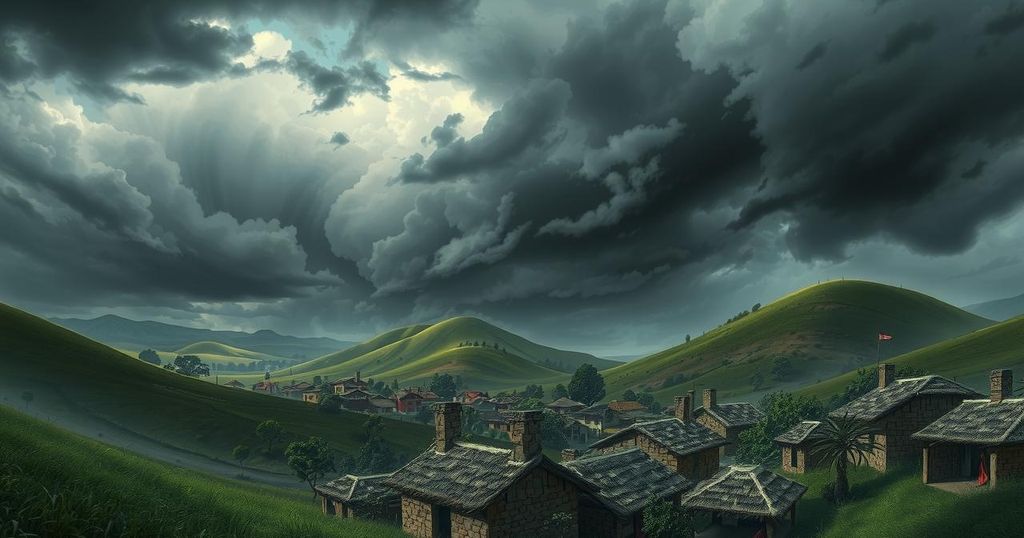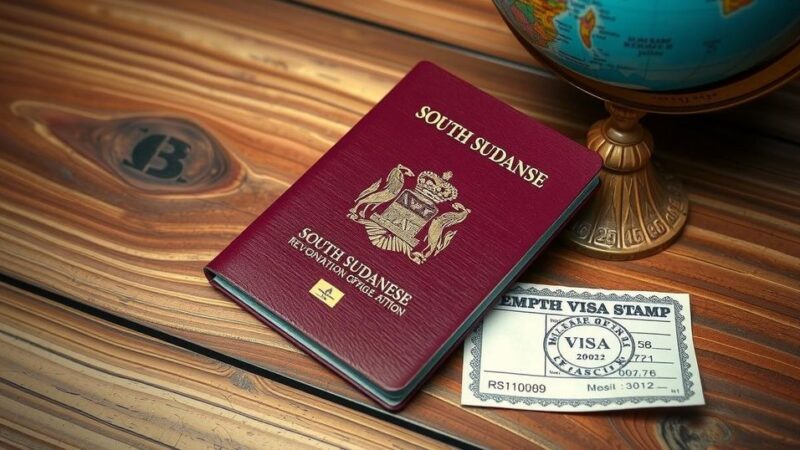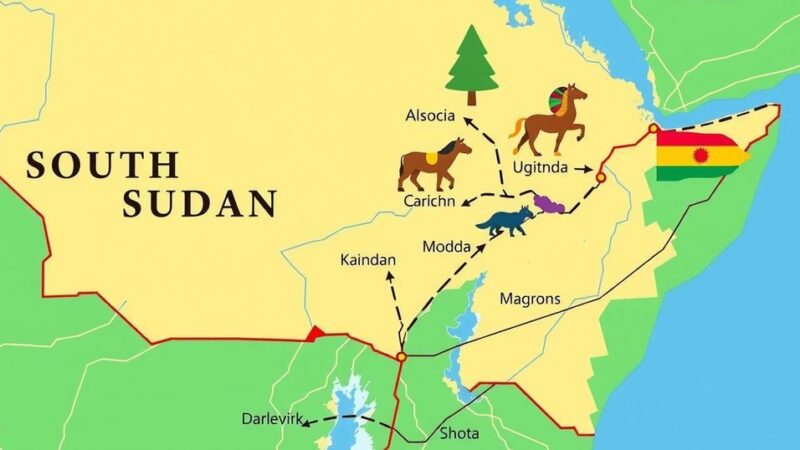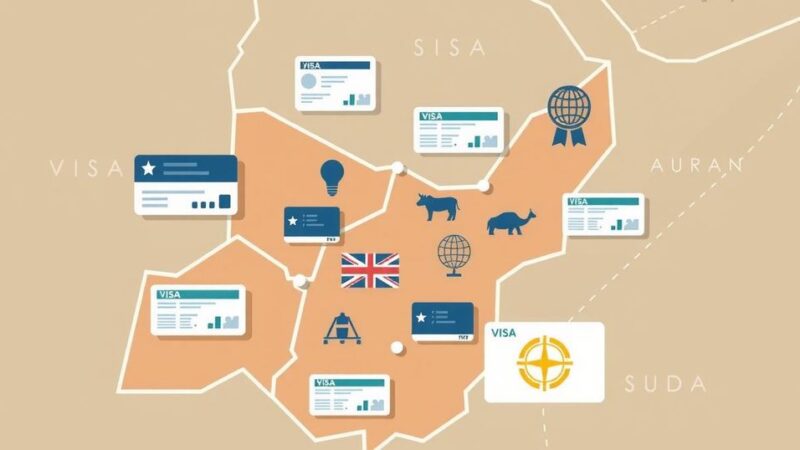M23 rebels have seized the town of Walikale in the DRC despite ceasefire efforts. This marks a significant territorial gain for the group, backed by Rwanda, amidst ongoing tensions. Recent talks between Congolese and Rwandan leaders express support for a ceasefire, but details remain uncertain, with fears of a broader conflict in the mineral-rich region.
In a significant development, the Rwanda-backed M23 armed group has captured the mining town of Walikale in the Democratic Republic of Congo, despite ongoing efforts to establish a ceasefire. This seizure, which occurred late Wednesday, marks the M23’s most westward advance into the DRC since its formation in 2012 and affects a population of approximately 60,000 residents.
The assault follows surprise discussions between Congolese President Felix Tshisekedi and Rwandan President Paul Kagame in Doha, where they expressed mutual support for a ceasefire. However, the specifics of a truce remain undetermined, with mediator Qatar stating that further negotiations are still required.
A Congolese military officer indicated that the M23 now occupies Walikale, whereas Congolese forces have strategically retreated to Mubi, located 30 kilometers away. This escalation has already compelled mining company Alphamin to evacuate personnel and halt operation at its significant tin mine due to security concerns, thus impacting the global tin market as prices rise amid supply chain anxieties.
The M23’s rapid advances have heightened fears of regional instability, with its fighters now located in Walikale, despite being accused by the DRC government of seeking to exploit mineral resources with alleged support from Rwanda. Although Rwanda denies these claims, a UN report suggests that Rwanda maintains troops in eastern DRC to bolster the M23.
The meeting between Presidents Kagame and Tshisekedi, facilitated by Qatar’s Emir, aimed at fostering a ceasefire, yet the absence of concrete terms for implementation complicates the situation. Analysts indicate that while the M23 shows no inclination for negotiation, their primary objective remains the ousting of President Tshisekedi from power. Previous peace talks scheduled in Luanda were also canceled, reflecting the ongoing volatility in the region.
The capture of Walikale by the M23 rebels signifies a critical escalation in the ongoing conflict in the DRC, challenging efforts for peace amidst mounting regional tensions. The recent discussions between Congo and Rwanda highlight the precarious situation, with unresolved negotiations for a ceasefire and important implications for the region’s mineral wealth and security. The fallout from these developments will likely continue to impact local communities and global supply chains for key minerals.
Original Source: www.rfi.fr






